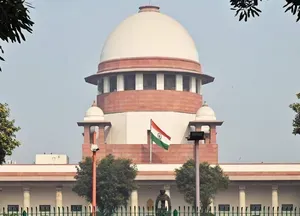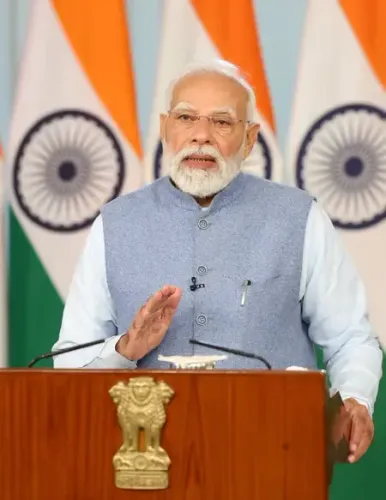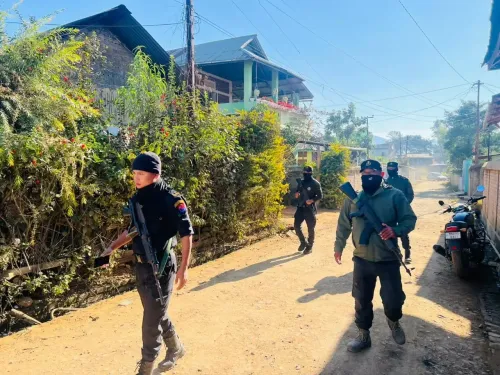Supreme Court Ruling Protects Anurag Dubey from Police Custody Without Court Approval

New Delhi, Nov 28 (NationPress) The Supreme Court issued a ruling on Thursday that prohibits the police from taking Anurag Dubey, the brother of gangster Anupam Dubey, into custody in connection with any current or future cases without the court's prior consent.
A panel consisting of Justices Surya Kant and Ujjal Bhuyan acknowledged concerns regarding Anurag Dubey @ Dabban, who remains apprehensive about the possibility of additional charges leading to his arrest.
Additional Advocate General (AAG) Rana Mukherjee, representing the UP government, noted that while the petitioner was requested to participate in the investigation, he only submitted an affidavit and failed to appear before the Investigating Officer.
To facilitate the investigation while safeguarding the rights of the accused, the Supreme Court instructed Anurag Dubey @ Dabban to provide his mobile number to the SHO, which will be used for a duration of 24 hours.
The Investigating Officer is required to inform the petitioner of the time, date, and location for joining the investigation via the provided mobile number, and the petitioner must comply with the notifications received from the Investigating Officer(s).
The case is scheduled for a hearing on January 16 of the following year, with the apex court granting interim protection in the meantime.
Previously, on August 13, the Allahabad High Court denied a request to dismiss the FIR but stated that if Anurag Dubey @ Dabban appears before the lower court within 60 days and requests bail or anticipatory bail, it will be considered.
However, if the petitioner fails to appear within the specified timeframe, coercive measures will be implemented, as clarified by Justices Siddharth and Brij Raj Singh of the Allahabad HC.
In his writ petition filed under Article 226, Anurag Dubey @ Dabban challenged the legitimacy of the FIR filed under Sections-323, 386, 447, 504, 506 of the IPC at Maudarwaja Police Station in Farrukhabad.
After reviewing the evidence and case specifics, the Allahabad High Court remarked that it could not conclude that no offense was established against the petitioner at that time, emphasizing that the issues raised pertained to disputed factual questions unsuitable for adjudication under Article 226 of the Constitution.










